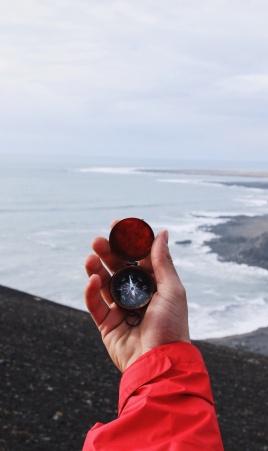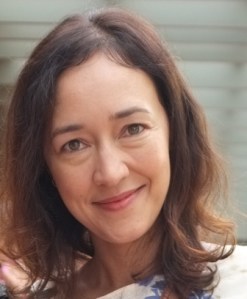
A few months ago, speaking with a friend, I tried to explain my sense of loss of intellectual conviction about the most important beliefs that have so far underpinned my life and identity. At a deep level I seemed to be truly fed by the rituals of Catholic faith, it’s tradition, its people and the very visceral reality of the Eucharist. I almost literally needed them to live.
But at the same time it bothered me that everything could either be humanly explained, or might be potentially explainable without any recourse to the God of Christian belief.
For so many years I’ve been perfectly satisfied with the thought that of course we can’t understand God with our limited minds, that we must use our minds while accepting that they only go so far – and as a baptised Christian I am in a covenant relationship with God that encompasses my body, mind, heart and soul. I have freely chosen to make this relationship the foundation of my life and all I need to do is remain faithful to the God who knows and loves me, to Jesus, who was born and died, and I believe still lives, forever changing reality.
It’s a beautiful thought. But it wasn’t serving me anymore, or at least not as well it used to. I still prayed, but with a feeling that as I prayed, another part of me was observing quite dispassionately this attempt at a thing called prayer.
This other me might interject with a quiet comment – is this a crutch? Self-help or free therapy? Wishful thinking? And the praying me would answer back – of course it’s a crutch. God knows we need daily help, it’s the way He made human beings. There’s nothing wrong with that. And yes, prayer is the ultimate self-help therapy around, and far surpasses anything we could come up with by ourselves and put out on the market. It’s a lot more as well, which you well know. Now go away.
And the quiet answer would come, No. I’ve got more.
And on it would go.
My friend, who’s a priest, encouraged me to continue praying, not trying to engage with or repress thoughts that did nothing but distract and trouble but to quietly set them aside, until such time as God ‘touched’ and transformed them. And in the meantime, if I couldn’t be 100% sure that God exists, or if He did, that he particularly cared about my existence, to keep living as if He did anyway.
That would make all the difference, he said.
This is pretty good advice – I would have given it myself if I hadn’t been so caught up in my own misery! I’m sure turning 40 last year has a lot to do with this reappearance of doubt – mid-life in our culture is a time of assessing one’s life, direction, and values. The last time I had seriously questions about religious faith was when I was first thinking about it as a 16 and 17 year old.
It’s possibly, simply, time for an upgrade in the faith department. And more generally, an upgrade in the maturing as an adult department.
I’m reminded of two parallels with other aspects of life. In the current edition of FRANKLY magazine is an article written by Francine and Byron Pirola titled Our Many Marriages. They write of the difficulty that comes with transition stages in a long-term relationship, and how necessary these difficult stages are as the individuals and their relationship change, for the relationship to grow and deepen.
They identify several ‘marriages’ they’ve had with each other over the years so far, and offer some advice for navigating the stormy transition periods. Basically, it’s simply to accept that the relationship will change over time, and to remain curious about and open to the other person. Also, to be the best person we can ourselves be in the meantime.
Obviously, when it comes to having doubts about faith, God isn’t going to change; I am the one changing. This is a simple fact of life which doesn’t preclude moving towards a deeper relationship with God. The outcome can just look really uncertain for a while – as the outcome in a rocky period in a marriage can look uncertain. It’s not a comfortable feeling. In fact, you could say it’s a feeling that is forcing me to exercise my faith.
Keeping a marriage going requires ongoing leaps of faith, sometimes huge leaps! It’s also one of the few most meaningful things one can do with a life; to marry someone and keep loving that person until death. So is cultivating a belief in a personal God and a relationship with that God until our death.
A little lower on the level of importance and impact (but still very relevant to me!) is the writing life. For me, it is so bound up in my sense of identity, including my religious faith, that writing very often has been a conduit of prayer, and love, and life.
So the other thing that springs to mind when thinking about doubt, whether big doubts about the nature of reality and the self, or annoying little daily self-doubt, is some great advice from very good writers – most memorably Stephen King who offered this in his book On Writing:
“If you want to be a writer, you must do two things: read a lot and write a lot.”
It’s similar for the life of the Christian. That is, if you want to know God, you must do two things – pray a lot and love a lot. In other words:
“You shall love the Lord your God with all your heart, and with all your soul, and with all your mind, and with all your strength…(and)…You shall love your neighbour as yourself.” (Mark 12:29-31)
The Spanish poet and mystic St John of the Cross is probably the world’s expert on Christian doubt, and what to do when it comes calling:
“Never give up prayer, and should you find dryness and difficulty, persevere in it for this very reason. God often desires to see what love your soul has, and love is not tried by ease and satisfaction.”
I have a phlegmatic, fairly sedate kind of personality. A level of discomfort and dissatisfaction is required to get me moving, even on things that matter most to me. Deadlines, appointments, my children or husband getting upset with me. I should know by now that distress, doubt, uneasiness and dissatisfaction is the way I’m often pushed in the direction of growth.
I can keep obsessing about my doubts and other interior difficulties, or I can decide to set them aside and get on with being the best wife, mother, worker, whatever, I can be with the gifts and talents I have at my disposal, including my Catholic faith. Thus, I can choose to believe that it’s precisely in my doubts about God that I am being loved by God in this moment of time, and being given a greater capacity for love.
That’s as reasonable as any other take one may have on doubt, and one which, I think, will help me to live better today.
Image by Garrett Sears
Related reading: The Little Book of Anxiety, Atheism, and Faith
Update: Pope Francis says not to be afraid of questions and doubts.
PS. If you haven’t subscribed to my blog and would like to keep in touch, use the sign-up box in the section below. Or drop me a line by email by clicking here. It’d be great to know you!

Yup, we all go through it, don’t we? I know I do. Thank you for being so honest in sharing your thoughts! Inspiring. Especially love the quote from St. John of the Cross – I’ll be using that!
LikeLiked by 1 person
I heard something beautiful this morning and it reminded me of this post, Marilyn. It was this; “Doubt isn’t the opposite of faith. The opposite of faith is fear.” I guess that means that it is somewhat normal to have doubts. So, it’s lovely to know that we are normal!!!
LikeLike
Absolutely, Jenny!
LikeLike
Thank you Elizabeth! If there’s anything in particular you liked I’ll continue the theme.
LikeLike
Marilyn, your honesty is so refreshing. I love it when writers explore the tough issues regarding faith. I’m a fan of C.S. Lewis’ book: Mere Christianity. It digs deep into the questions of faith. Same with Philip Yancey’s book: Rumours of Another World. Are you familiar with these authors. I suspect you’d enjoy these titles. Philip Yancey also wrote a book about prayer: Prayer–Does it Make any Difference? It comforts me to know I’m not alone with the multitude of questions that simmer in my brain. God is good in meeting me in His Word and through the words of others that also point back to His Truth.
Blessings ~ Wendy
LikeLike
Thank you Wendy! I loved Mere Christianity but I haven’t heard of Philip Yancey. Yes it’s nice to know that other people of faith live with lots of questions and even doubts. I need to be careful of my tendency to overthink these things though – and remember to have a sense of humour about them!
LikeLiked by 1 person